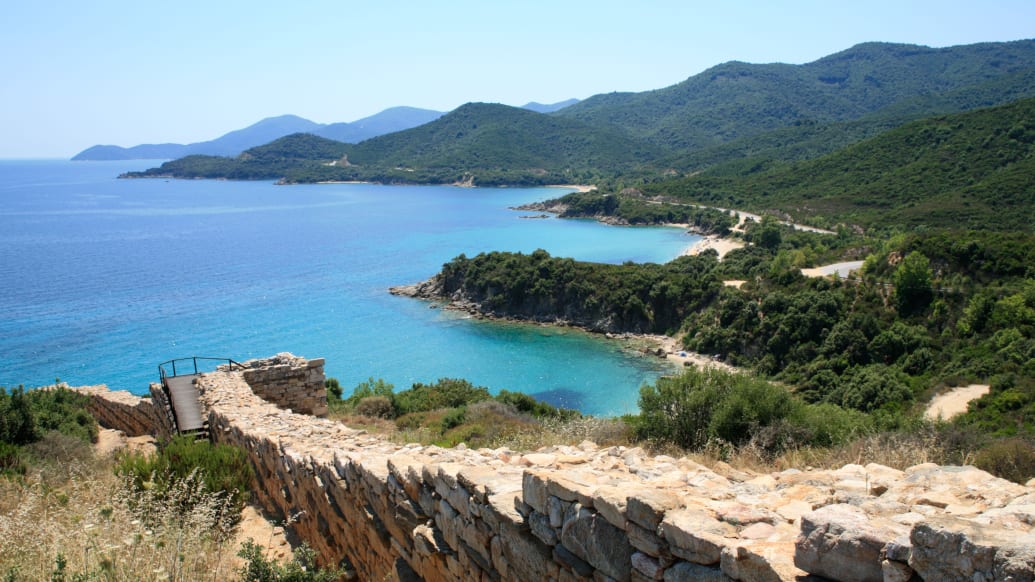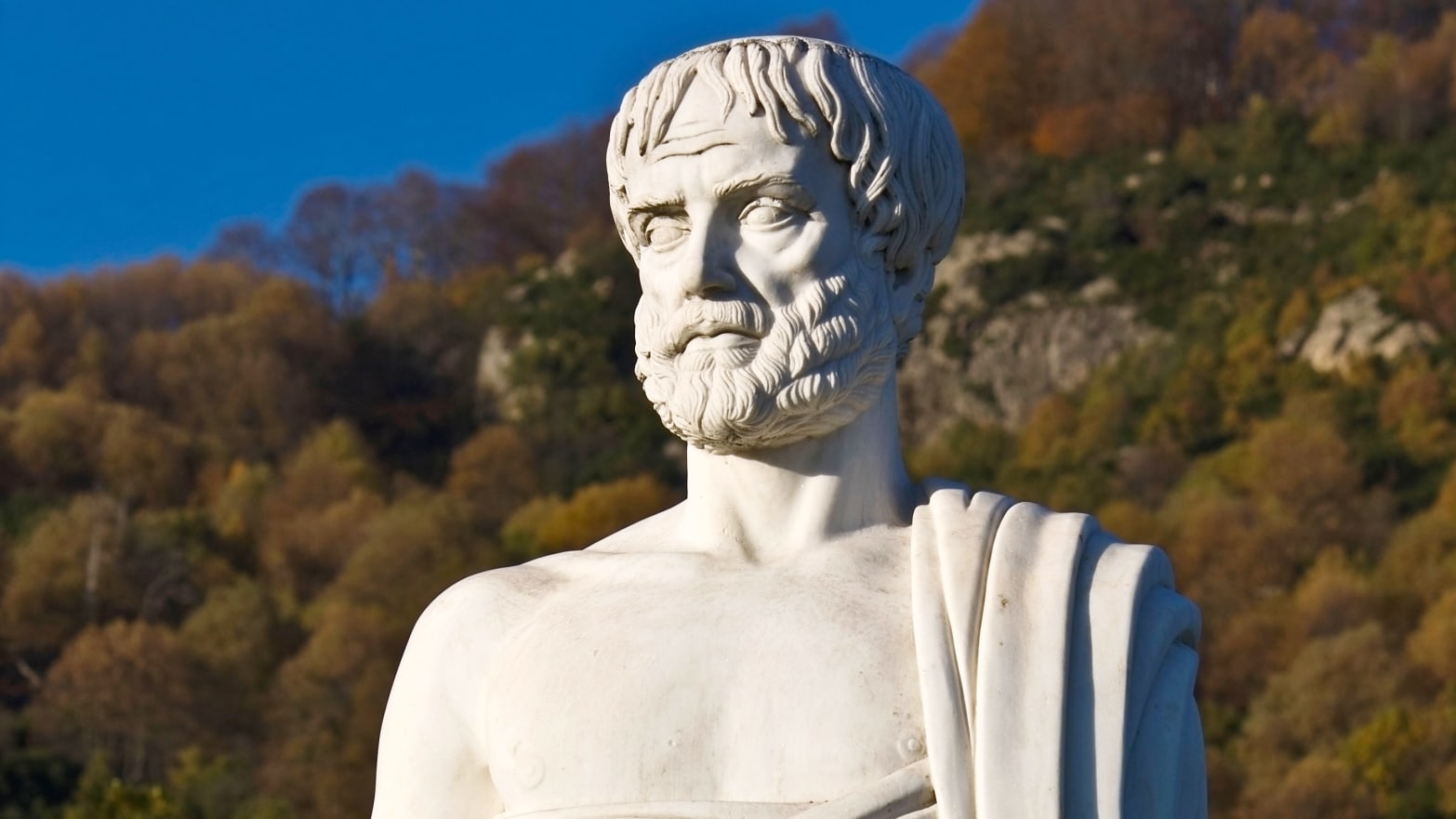Like splinters of the true cross in medieval cathedrals, Greek archaeological sites linked to great historical figures keep on proliferating. A vast tomb unearthed in Amphipolis in 2014 was linked, by the excavators, to Hephaestion, the best friend of Alexander the Great, on thin or contradictory evidence. Now an even more sensational claim has been advanced for another northern Greek site, the ancient city of Stagira. Archaeologist Konstantinos Sismanidis, who has been digging at Stagira since 1990, announced on Thursday that he was “as certain as one can be” that a structure recently found there is the tomb of the philosopher Aristotle.
Sismanidis admitted he had no “proof” but only “circumstantial evidence” to support the claim—a bizarrely tautological statement, since proof almost never exists in the case of classical tomb finds in this region. Almost 30 years after they were opened, two Macedonian chamber tombs near the Greek village of Vergina are still the subjects of heated debate among specialists. Despite a vast quantity of material recovered from Tomb II, which had never been plundered since the day it was sealed, scholars remain divided over whether the tomb housed Philip II, father of Alexander the Great, or Philip III, who died about two decades later. Dating methods in ancient Aegean archaeology are simply not advanced enough to draw such a precise bead on the date of the structure or its contents.
It raises some suspicion therefore that Sismanidis alluded to dating in his defense of Aristotle attribution. Aristotle died in 322 B.C., and his ashes were buried on the island of Euboea. Stagira at that point lay largely in ruins, a victim of the campaigns of Alexander’s father. But Alexander, who had been tutored by Aristotle, had, before his own death a year earlier, ordered Stagira rebuilt as a favor to his former teacher, and the new occupants of the town, according to one historical source, had Aristotle’s remains repatriated to a special shrine built there. Sismanidis claims that his structure dates to the early Hellenistic period, about the right time for the reburial of Aristotle’s remains. But, critics will be quick to note, available methods can only fix the date of an empty building like this one within a century or more, not a decade.

Probably no one will ever be sure what the purpose of Sismanidis’s building was, but the appellation “Aristotle’s Tomb” will no doubt stick, and that will decide the issue. This is how modern archaeology most resembles medieval relic-hunting. Give a site a name and you give it instantaneous mythology. The ruins called Agrippina’s Tomb near Miseno, Italy, in fact have no connection to Agrippina the Younger, Nero’s mother, but guidebooks and signs nonetheless direct tourists there and retell the dramatic story of how Nero had the woman assassinated. It’s not clear when the name first came into use, but the town of Miseno has benefited greatly from its romantic associations.
So it is with “Philip’s Tomb” in Vergina, as its excavator, Manolis Andronikos, first termed it—intending to invoke the historical memory of Alexander’s father, a great conqueror and king, but accidentally leaving the door open to Alexander’s half-brother, also named Philip, a mentally handicapped nonentity. Vergina is today a major tourist destination, and the Greek government has vehemently insisted on the identification of the major finds there with Philip II, not III. The commercial and even ideological impetus behind that attribution have been strong enough to overwhelm all objections and doubts raised by scholars.
One badly wants to grant the Greeks such license, since their economy and national pride, both so badly battered in recent years, need every boost they can get. Indeed, international news outlets, perhaps out of charitable motives, have given a fairly free pass to Sismanidis’s claims. They harm no one, and if “Aristotle’s Tomb” again becomes a pilgrimage site or the focus of a yearly festival, as Stagira apparently was in antiquity, it may do the Greeks some small amount of good. And the rest of the world can certainly use a reminder of Aristotle’s great intellectual prowess and moral legacy.
But, for specialists like myself whose job it is to patrol the ever-more-porous boundary between truth and romantic fiction, the announcement by Sismanidis means that yet another potential breach requires our intervention.

